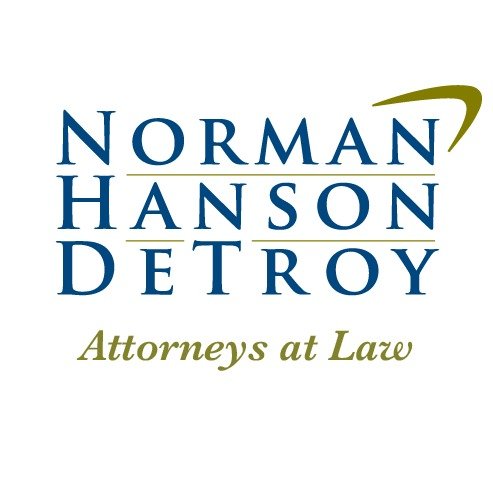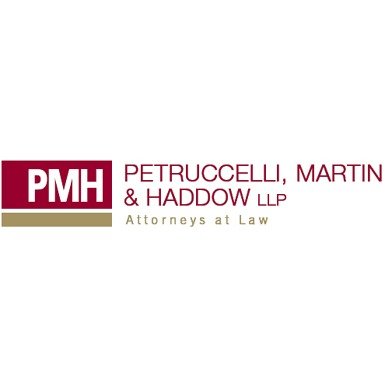Best Art & Cultural Property Law Lawyers in Maine
Share your needs with us, get contacted by law firms.
Free. Takes 2 min.
Or refine your search by selecting a city:
List of the best lawyers in Maine, United States
About Art & Cultural Property Law in Maine, United States
Art & Cultural Property Law encompasses a broad range of legal issues concerning the creation, ownership, protection, and transfer of art and cultural assets. In Maine, this field not only includes classic fine art like paintings and sculptures, but also addresses antiques, rare books, indigenous artifacts, architecture, and historic sites. Artists, collectors, museums, galleries, tribal nations, and the general public may all encounter legal matters related to the provenance, sale, or safeguarding of cultural property. The law in Maine reflects both state-level protections and compliance with federal statutes designed to prevent illicit trade, preserve heritage, and resolve disputes over ownership or reproduction rights.
Why You May Need a Lawyer
Legal guidance in Art & Cultural Property Law becomes crucial under a variety of circumstances. Individuals and institutions often seek assistance when acquiring or selling artworks, negotiating artist representation agreements, conducting due diligence on art provenance, handling disputes over authenticity or title, and managing inheritance or donation of cultural items. Lawyers are also key in navigating cases involving suspected looting, theft, illegal export or import, and the repatriation of Native American or indigenous cultural objects. Additionally, artists often need protection and representation regarding copyright, moral rights, and intellectual property licensing. If you or your organization is facing regulatory investigations, tax issues related to art donations, or need to comply with local or federal cultural heritage laws, consulting a qualified attorney is vital.
Local Laws Overview
In Maine, Art & Cultural Property Law is governed primarily by a blend of state statutes and federal regulations, supplemented by specific provisions on the local level:
- Antiques and Cultural Heritage Laws: Maine law prohibits unauthorized excavation and removal of historic artifacts from public lands. The Maine Historic Preservation Act outlines criteria for preserving state historic sites and regulates archaeological activities.
- Native American and Indigenous Law: Maine’s tribal communities are co-stewards of important cultural artifacts. State law, in concert with the federal Native American Graves Protection and Repatriation Act (NAGPRA), impacts the holding, repatriation, and display of Native American remains and sacred objects.
- Intellectual Property: State and federal copyright and trademark law protections extend to artistic works created by Maine’s artists. This also includes moral rights under the federal Visual Artists Rights Act for certain categories of artwork.
- Art Theft and Fraud: Both Maine’s criminal code and federal law prosecute theft, fraud, forgery, and trafficking in stolen cultural property. Victims and institutions may seek restitution and recovery remedies.
- Taxation and Charitable Donations: When donating art or historic items to museums and charitable organizations, Maine taxpayers must comply with IRS and state guidelines regarding appraisals and charitable deductions.
Some municipalities in Maine also have specific ordinances protecting public art or regulating historic districts. It is critical to understand both statewide statutes and local regulations relevant to your situation.
Frequently Asked Questions
What qualifies as cultural property under Maine law?
Cultural property in Maine includes artworks, antiques, archaeological finds, historic records, monuments, and artifacts of significance to the heritage, history, or culture of Maine and its native peoples.
How do I determine if an artwork is authentic or has legal title?
You should request an established provenance, obtain certified appraisals, and consider engaging an attorney to review any potential claims, prior ownership history, or risk of title disputes.
Can I excavate artifacts I find on my private land in Maine?
You may need permits, especially if items have archaeological importance or are regulated under Maine’s historic preservation laws. Removing artifacts from certain public lands without permission is illegal.
What laws protect Native American artifacts in Maine?
State historic preservation statutes and federal laws such as NAGPRA protect Native American artifacts and ancestral remains, requiring consultation, proper storage, and sometimes repatriation to tribal communities.
What legal issues arise in donating art to a museum?
Donors must establish clear title, ensure proper valuation and appraisal for tax purposes, and draft donation agreements that may specify use or display conditions for the art given.
What should artists know about copyright in Maine?
Original works of art are automatically protected by copyright when fixed in a tangible form. Artists should register works for added legal protection and understand their moral rights regarding attribution and integrity.
How are disputes over stolen art handled?
Victims can report theft to local law enforcement and the FBI Art Crime Team. Law enforcement and courts can order restitution or the return of stolen art if valid ownership is established.
Are there special laws for exporting or importing art in Maine?
Yes, both federal rules and international agreements may restrict the export or import of cultural property, especially if items are considered national treasures. Proper documentation and permits are essential.
How can I protect public art or murals in Maine?
Local ordinances may offer protections for public art. Copyright protections and community partnership agreements are also important mechanisms for preserving public artworks.
What should I do if I receive a claim on an artwork I own?
Do not make statements or take actions without consulting a lawyer. An attorney can help investigate the claim, advise on potential risks, and represent you in negotiations or any legal process.
Additional Resources
If you need further information or assistance, consider contacting these organizations:
- Maine Historic Preservation Commission: Oversees archaeological and historic resources statewide
- Maine State Museum: Resource on Maine’s cultural heritage and collections
- Maine Indian Tribal-State Commission: Focuses on tribal interests and cultural matters
- FBI Art Crime Team: Investigates art theft and cultural property crimes nationally
- American Alliance of Museums: Offers educational materials on legal compliance for cultural institutions
- Volunteer Lawyers for the Arts (VLA): Provides legal resources for artists and cultural organizations
Next Steps
If you are facing a legal issue involving art or cultural property in Maine, begin by gathering all relevant documents, contracts, correspondence, appraisals, or provenance records. Identify your core concerns, whether related to ownership, authenticity, sale, tax, display, or repatriation. Consider reaching out to knowledgeable professionals such as appraisers or museum curators to better understand your situation.
Next, consult with an attorney experienced in Art & Cultural Property Law, ideally one familiar with both Maine and federal regulations. Prepare a written summary of your situation and any questions you have about your rights or obligations. Timely legal advice can help protect your interests, avoid costly disputes, and ensure compliance with complex statutes governing Maine’s heritage and the wider art world.
Lawzana helps you find the best lawyers and law firms in Maine through a curated and pre-screened list of qualified legal professionals. Our platform offers rankings and detailed profiles of attorneys and law firms, allowing you to compare based on practice areas, including Art & Cultural Property Law, experience, and client feedback.
Each profile includes a description of the firm's areas of practice, client reviews, team members and partners, year of establishment, spoken languages, office locations, contact information, social media presence, and any published articles or resources. Most firms on our platform speak English and are experienced in both local and international legal matters.
Get a quote from top-rated law firms in Maine, United States — quickly, securely, and without unnecessary hassle.
Disclaimer:
The information provided on this page is for general informational purposes only and does not constitute legal advice. While we strive to ensure the accuracy and relevance of the content, legal information may change over time, and interpretations of the law can vary. You should always consult with a qualified legal professional for advice specific to your situation.
We disclaim all liability for actions taken or not taken based on the content of this page. If you believe any information is incorrect or outdated, please contact us, and we will review and update it where appropriate.
Browse art & cultural property law law firms by city in Maine
Refine your search by selecting a city.











